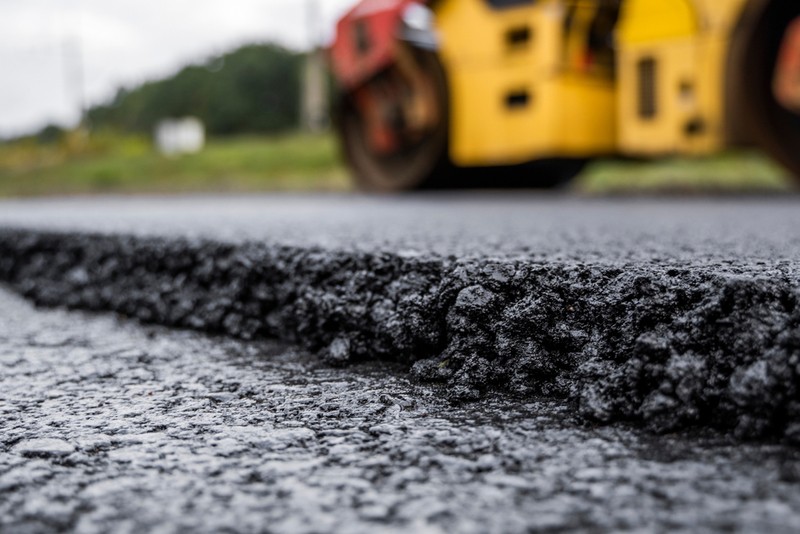Cold Mix Asphalt Vs. Hot Mix Asphalt: Which Is Right for You?

Make-up Differences
Cold mix and warm mix asphalts vary dramatically in their structure, with distinct characteristics that impact their performance and applications. Cold mix asphalt is created by emulsifying the asphalt binder with water and an emulsifying agent before mixing it with aggregate. This method permits for the asphalt to be practical at reduced temperatures, making it ideal for temporary repairs and for usage in cooler climate condition. Warm mix asphalt, on the various other hand, is produced at heats, typically between 300-350 ° F, which aids to attain better compaction and a more sturdy end product. The hot mix asphalt manufacturing process entails heating the aggregate and asphalt binder separately prior to combining them at the asphalt plant.
Moreover, cool mix asphalt often tends to be much less dense and more versatile than hot mix asphalt. This flexibility makes it better suited for locations with greater degrees of motion, such as driveways or roadways with hefty website traffic. On the other hand, hot mix asphalt is known for its high resilience and resistance to rutting and cracking, making it a recommended selection for highways and high-traffic roads where longevity is vital.
Setup Refine Variations
The process of setting up cool mix and hot mix asphalt displays noteworthy variations in their demands and procedures. In contrast, warm mix asphalt necessitates a much more fancy installment procedure. Due to the home heating requirements, hot mix asphalt setups are usually lugged out by professionals with customized equipment, guaranteeing a more permanent and structurally audio outcome.
Sturdiness and Durability Elements
When considering asphalt options, longevity and longevity are important variables to evaluate for long-term sidewalk performance. Warm mix asphalt (HMA) is recognized for its phenomenal toughness and long life. The high temperature levels throughout the laying and blending procedure allow for far better compaction, causing a denser and stronger sidewalk structure. This leads to HMA being a lot more immune to rush hour tons, severe climate condition, and the effects old compared to chilly mix asphalt (CMA)
In regards to durability, HMA generally outperforms CMA due to its superior toughness and resistance residential properties. HMA sidewalks have a longer service life, needing less regular repairs and upkeep, which can equate to set you back savings in the long run. Furthermore, HMA sidewalks are much more easily personalized to satisfy details job requirements, even more enhancing their durability.
Price Considerations
Thinking about the economic effects is a crucial element when assessing the choice in between hot mix asphalt (HMA) and cold mix asphalt (CMA) for sidewalk projects. While the initial cost of warm mix asphalt is generally more than that of cold mix asphalt, HMA often gives a much more affordable solution over time as a cold mix asphalt result of its superior toughness and long life. HMA is recognized for its capacity to endure rush hour lots and harsh climate condition, decreasing the demand for constant fixings and maintenance. On the various other hand, cool mix asphalt is much more cost effective ahead of time but might call for more frequent patching and resurfacing, causing greater upkeep costs over time.
In addition to material costs, it's crucial to consider the costs connected with installation and upkeep when contrasting HMA and CMA. Ultimately, the decision in between HMA and CMA ought to take into account not simply the preliminary cost yet likewise the long-lasting financial effects to establish the most cost-effective option for the specific pavement task.
Environmental Influence Contrast
Comparison of the ecological influences between hot mix asphalt (HMA) and cold mix asphalt (CMA) exposes unique distinctions in sustainability techniques. HMA production calls for high temperatures, leading to boosted power usage and greenhouse gas discharges.
In addition, the usage of CMA usually includes reusing existing asphalt pavement, advertising resource conservation and minimizing the quantity of waste sent out to land fills. This recycling facet even more boosts the sustainability of CMA contrasted to HMA. On the whole, when taking into consideration the ecological influence, CMA emerges as an extra eco sustainable choice because of its reduced energy needs, reduced discharges, and the potential for recycling existing materials. By opting for CMA over HMA, roadway building jobs can add positively to environmental conservation initiatives.
Conclusion
To conclude, the selection between cool mix asphalt (CMA) and warm mix asphalt (HMA) depends on numerous elements such as composition, installation procedure, toughness, longevity, price, and ecological influence. asphalt patch repair. While CMA uses a cost-effective and quick remedy for minor repair work, HMA makes sure exceptional longevity and durability for heavy website traffic areas. Take into consideration these elements very carefully to figure out which sort of asphalt is the ideal selection for your paving requires
.png)
Thinking about the monetary implications is a critical facet when reviewing the choice between hot mix asphalt (HMA) and chilly mix asphalt (CMA) for pavement tasks. While the preliminary price of hot mix asphalt is usually greater than that of cool mix asphalt, HMA commonly supplies a much more cost-effective solution in the long run due to its superior durability and long life. cold mix asphalt.Contrast of the ecological influences between warm mix asphalt (HMA) and cool mix asphalt (CMA) discloses distinctive differences in sustainability techniques.In conclusion, the selection in between cool mix asphalt (CMA) and hot mix asphalt (HMA) depends on numerous variables such as structure, installment procedure, toughness, longevity, price, and ecological influence